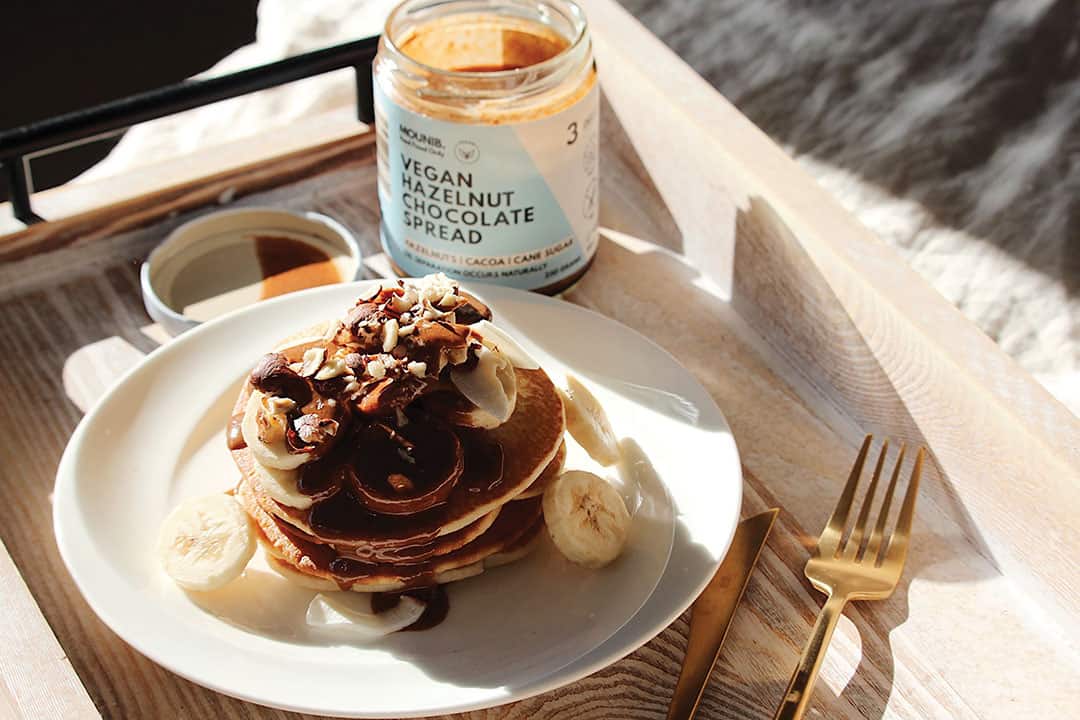Food — we eat it, we talk about it, and we love it, but very few of us think about the process that gets it to our plates. Before taking a bite, have you ever thought about where the food comes from, how it was made, or who made it? If you have, Iman Mounib has got you covered; her ethically sourced, sustainably packaged, locally made hazelnut spread is perfect to cover your toast. The Varsity interviewed Mounib about her product and the importance of sustainable food in the modern climate.
Every entrepreneur has that lightbulb moment when they come across the idea for their business. For Mounib, her inspiration was personal, and it came to fruition while she was a UTSC student.
“I can’t eat refined sugars… but I would crave sugar,” she said, “so I [needed] something that satisfies my cravings, but is also good for me.” The most natural progression for Mounib was to start making her own version of Nutella, except a lot healthier. With some help from UTSC’s startup incubator, The Hub, her brand Mounib Real Food Only was born.
Mounib Real Food Only sells a total of four different products: two hazelnut chocolate spreads, a peanut chocolate spread, and an almond chocolate spread. The hazelnut spreads are made with few ingredients: hazelnuts, which require little water to produce, are drought resistant, and require no pesticides; honey, which is generally more sustainable than cane sugars whose production yields harmful liquid and solid waste; and organic, fair-trade cacao.
The product does not include palm oil like its competitors do, as palm oil production is a known contributor to deforestation. The production process requires farmers to convert tropical land to agricultural land, which destroys the natural environment of many different species.
The packaging of Mounib Real Food Only’s products is also environmentally friendly. “Anything I use, I’m trying to make it recyclable,” Mounib said. “The only thing that I haven’t figured out yet is obviously the seal that goes around [the jar].” She’s also attempting to find labels that are both waterproof and recyclable to ensure that the containers can be reused even after the chocolatey goodness is gone.
Once customers of Mounib Real Food Only are done with the product, they have the option to bring the containers back to the various locations where the products are sold, which can be found on the company’s website. “People can give me back the glass jars. We disinfect them, and we reuse them.” From input to output, Mounib Real Food Only makes strides to be a healthy, sustainable option for its consumer base.
Sustainability does come with costs. Mounib noted that glass packaging does cost more than the plastic alternative, but for her, “it’s just not worth the few extra dollars to use plastic.”
Another drawback to only using natural ingredients is that it shortens the products’ shelf life. “The reason a lot of spreads overall add that palm oil is because it makes it sit for longer without having any sort of oil separation,” Mounib said. “ It makes the whole product a lot cheaper to make.”
According to Ferrero, Nutella’s shelf life after opening is 12 months. While a Mounib Real Food Only spread won’t last a year without texture change, Mounib says that her customers eat the spread so regularly that they don’t give it time to expire. “[My customers] will pick up a jar every two weeks, and then the ones that take longer [would take] like one a month, and even if you keep it for a month, it’s fine.” The treat might not be evergreen like Nutella, but Mounib’s customers are willing to make that trade off.
At the end of the day, the biggest obstacle to more food brands going green seems to be the profit model. Small businesses like Mounib Real Food Only might be tasked with higher input costs, which can affect the price for consumers, but their niche consumer base is willing to pay up. It’s becoming evident that in today’s day and age, consumers are willing to pay more for products that are sustainable. Maybe there is hope on the horizon.
In the meantime, Mounib is looking to expand into the States and is also thinking about creating a protein bar version of her product. I guess it’s safe to say that people are going ‘nuts’ for this chocolatey spread.


